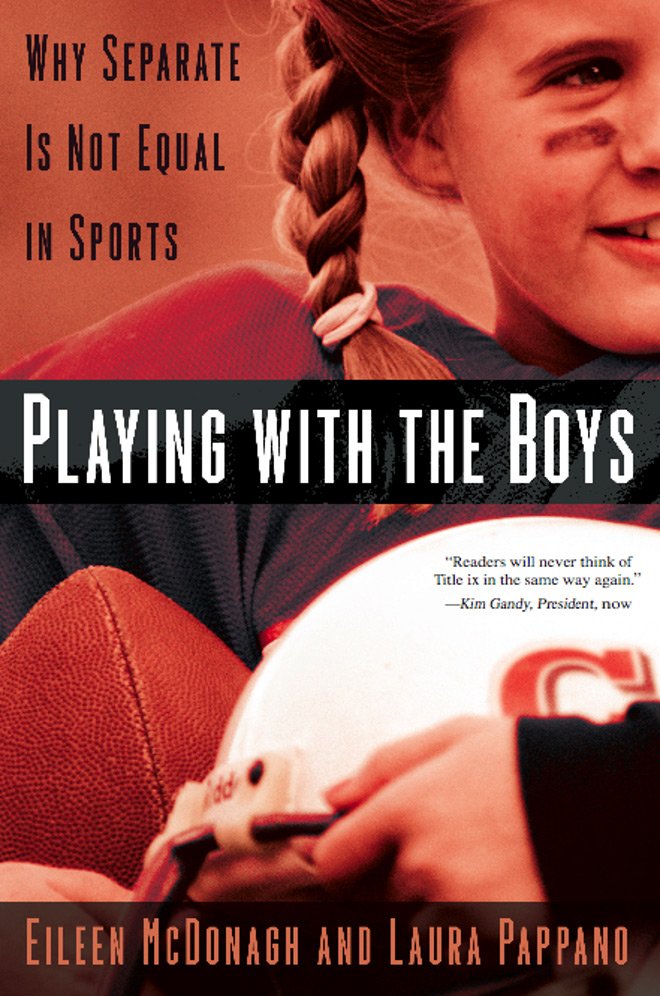Playing with the Boys: Why Separate is not Equal in Sports
By Eileen McDonagh and Laura Pappano
Oxford University Press, 2007
From small-town life to the national stage, from the boardroom to Capitol Hill, athletic contests help define what we mean in America by success. And by keeping women from playing with the boys on the grounds that they are inherently inferior to men, society relegates them to second-class status in American life.
Commentary
“Convincingly argue[s] the notion that sports, like politics, higher education, and employment generally, should provide equal opportunity for women... Highly recommended.”
— Library Journal
“A serious examination of the role of gender politics in sports.”
— The Nation
“McDonagh and Pappano hit a home-run! This book shows that coerced sex segregation in sports does not benefit women, and in fact holds back women who are fully capable of competing with men — and that flies in the face of U.S. ideals of equality. Readers will never think of Title IX in the same way again.”
— Kim Gandy, President, National Organization for Women (NOW)
“In this informative, well-written book, [McDonagh and Pappano]...offer relevant information critical to understanding the role of gender in sport. The authors not only define the specifics of the problem but also probe questions associated with the formulation of gender roles... Highly recommended.”
— Choice
“This is one of those rare gems of a book that makes you entirely reassess what you thought you knew. Provocative, absorbing and meticulously argued, Playing with the Boys questions the received wisdom about Title IX and women's sports from the most unexpected perspective. Read the book.”
— Mary Fainsod Katzenstein, Professor of American Studies, Cornell University
“Three new books about Title IX have recently hit the shelves, and one of them promises to kick up some dust in the debate over gender equity in sports...But it is Playing With the Boys: Why Separate Is Not Equal in Sports, by Eileen McDonagh and Laura Pappano (Oxford University Press, 2008), that suggests a major shift in the way Americans view sports.”
— The Chronicle of Higher Education
“This is a wonderful work! It offers novel evidence from biology, history, and the law that makes us realize that women's sports are not only intrinsically interesting as a topic of study, but also a key part of larger debates about who we are as a society and a nation.”
